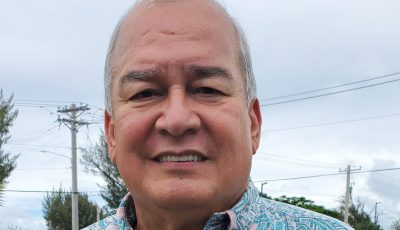OAG opposes loosening handgun rules in NMI
The Office of the Attorney General recently filed its opposition to plaintiffs’ motion for summary judgment in the firearms lawsuit brought by David and Li-Rong Radich.
The plaintiffs asked the court to grant summary judgment on counts 1 and 2 of their complaint. Summary judgment is a judgment entered by the court for one party and against another. If the court grants summary judgment, then the case is resolved without the need for a trial. Essentially, the plaintiffs argue that the Second Amendment protects the individual right to possess firearms in the Commonwealth for the purpose of self-defense. Further, the plaintiffs argue that the Second Amendment protects their right to possess handguns in the Commonwealth for the purpose of self-defense.
The Office of the Attorney opposes the plaintiffs’ motion for numerous reasons. First, a favorable ruling by the court would not redress the plaintiffs’ alleged injuries. If the court cannot redress the plaintiffs’ alleged injuries, then the court cannot exercise jurisdiction over the plaintiffs’ claims. Jurisdiction refers to the authority of the court to make legal decisions and issue judgments. If the federal district court does not have jurisdiction, then the court must dismiss plaintiffs’ complaint.
Second, the Office of the Attorney General argues that the Second Amendment cannot be interpreted in a manner which is contrary to the intent of the framers of the Covenant. When the Covenant was ratified, the framers of the Covenant, with good reasons, understood that the Second Amendment would not restrict the Commonwealth’s authority to prohibit the possession of firearms. Further, the framers understood that the Second Amendment did not protect an individual right to bear arms. Therefore, the opposition asks the court to find, that where a subsequent interpretation of a constitutional right is directly contrary to the known understanding of the framers, it may not be enforced against the Commonwealth, based on the fundamental principle that the intent of the framers is paramount when interpreting the Covenant.
Finally, the opposition argues that handguns are not constitutionally protected in the Commonwealth because handguns have never been used by the law-abiding citizens of the Commonwealth for the purpose of self-defense. In D.C. v. Heller, the United States Supreme Court imbued handguns with constitutional protection because handguns are widely used by Americans for the purpose of self-defense. However, the data used by the United States Supreme Court to make that determination did not include the Commonwealth. A review of the Weapons Control Act and firearm registrations issued between 1983 and 2015 proves beyond all doubt that the law-abiding citizens of the Commonwealth have never used handguns for self-defense. Therefore, the Office of the Attorney General opposes plaintiffs’ motion for summary judgment because handguns do not enjoy constitutional protection in the Commonwealth.
The Office of the Attorney General would like to thank the many attorneys and citizens that donated their time and energy to assisting with this case. In particular, we would like to thank attorney Sean Frink for his support and for providing access to experts on the Second Amendment; attorney Joseph Horey for his excellent research and his contribution to the opposition; the staff of the Commonwealth Archives at the Northern Marianas College for their help with researching the history of the Weapons Control Act; and the Northern Marianas Humanities Council for maintaining the digital archive of the Covenant negotiations and the Constitutional Convention. (Office of the Attorney General)



























